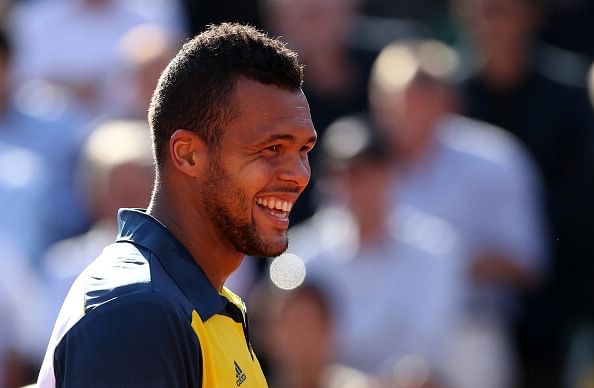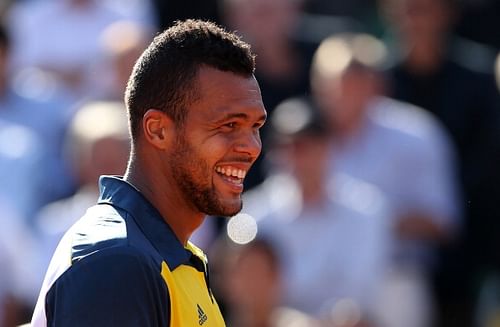
French Open 2013: Jo-Wilfried Tsonga’s rendezvous with destiny

The French are a passionate lot, as concerned about style as they are about substance. Jo-Wilfried Tsonga is mixing it up nicely to arouse their passion, fuelled by hope and promise. The 28-year-old is busy titillating an entire nation, waking it from its languid stupor, by brandishing the spectre of a golden weekend. The manner of Tsonga’s victory over Roger Federer has given rise to a sudden surge of hope that has an entire nation gasping at the pregnant pleasure of promise.
Tsonga is an animated artist painting himself on the court with the gay abandon of a gypsy in full flow. The Frenchman’s game is built on leg speed and energy as much as it is on the tactical nous needed to thrive on the biggest stages of tennis. It took all that and more for Tsonga to hand a crushing straight sets defeat to Federer. After all, the maestro has only suffered five such defeats since his ascent to the peak in 2004.
The world No. 8 is two steps away from satiating the thirsty souls of his country, parched for decades and deprived of a home grown champion. It is 25 years since Henri Leconte excited the French by reaching the finals of their own tennis party in 1988. The last time they had a French champion at Roland Garros was in 1983. That was when Yannick Noah swept to the title with a straight sets victory over Mats Wilander.
Noah had dismissed chances of French glory at the beginning of the 112th French Open, but has quickly corrected course on the evidence of Tsonga’s performances this fortnight. “What I have seen so far is that he has had a great tournament, very solid, very applied,” said Noah. “Very impressive and what strikes me especially is the attitude he has. You can see that he is determined to go all the way. He deserved his win over Federer. He was simply the better player on the day and it’s true we are starting to dream that he can go all the way.”
When queried about his relationship with Noah, Tsonga responded gamely – “When he sings, I dance,” he said in an obvious reference to the pop star credentials of Noah. But the two share remarkable similarities too. Both men were conceived by a mixed couple – a teaching mother and a sporting father. Jo-Wilfried is the son of handball player Didier Tsonga, while Yannick is the son of soccer star Zachary Noah. Incidentally, each of them took out the world No. 3 in their most successful campaign in Paris.
Tsonga has often been compared to the flamboyant Mohammed Ali. But can Tsonga keep himself nimble and agile, under the growing weight of history? Since the heady days of the Four Musketeers, who won six straight Davis Cups and 20 Grand Slam titles between them, the French have been scraping for tennis honours. Success has been an elusive guest, flirting occasionally without ever tying a knot. Encouraged by the moderate success of the French quartet of Richard Gasquet, Gael Monfils, Gilles Simon and Tsonga, the media there took to calling them the Nouveaux Mousquetaires (Neo-Musketeers).
At their peak, all four of them were in the top 20 on the ATP World Tour, sparking hopes of a French renaissance. Spring may not have turned into summer, but Tsonga has managed to reach three semifinals and a final at the Grand Slams. In his first and only foray to the final, Tsonga surrendered to Novak Djokovic in four sets 4-6, 6-4, 6-3, 7-6(2) at the 2008 Australian Open. From time to time, Tsonga has made a case for himself, notching up as many as 27 victories over players ranked inside the top 10.